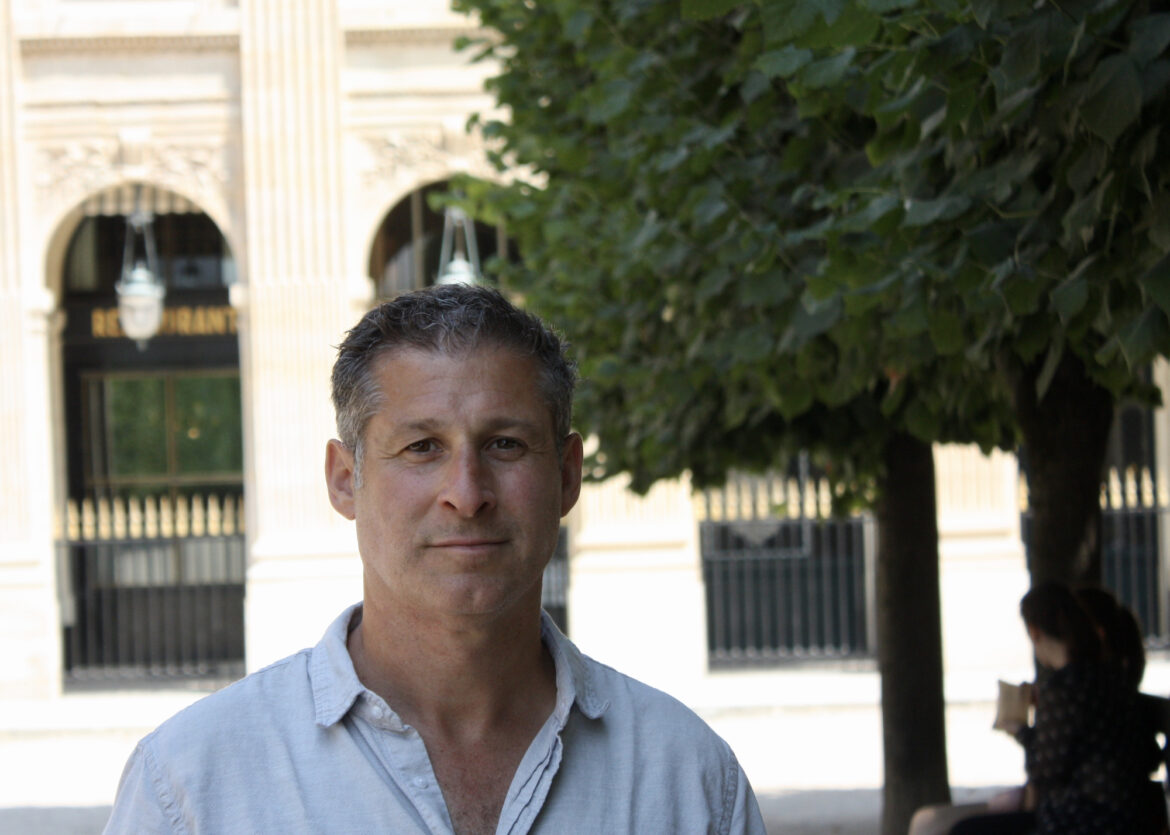Editor’s Note: The inspiration for Chris Pavone’s 2012 bestselling debut novel, The Expats, came from his 18-month experience as a trailing spouse in Luxembourg. Now the author of five thrilling novels, including the recently released Two Nights in Lisbon, he has agreed to share his own story with our readers as part of our Trailing-Spouse Book Club.

How did you become a trailing spouse?
My wife and I both worked in book publishing. One evening, she came home from work and asked, “What would you think of living in Luxembourg?” I was nearly 40 years old, and except for my college years at Cornell University in upstate New York, I’d never lived anywhere other than my hometown of New York City. This felt like a pretty big hole in a repertoire of life experiences, a problem that could be solved simply by saying yes. So I did.
How did your experience compare to what you had imagined?
All of it was more difficult than I imagined. I was living in a county where I had no friends or support system, and didn’t know how to do anything — throw out the garbage park the car, buy appliances. It was disorienting, alienating, and lonely.
And yet, all of the difficulties were much more rewarding than I could’ve expected.
How would you rank your move using the Gupte Scale?
10/15. The timing was perfect, the destination was so-so, and the support as insufficient.
How did your relocation present a challenge for you, personally and professionally?
I left behind what felt like my entire identity — my friends and family and career and hometown and everything that made me me — not to mention the nanny who’d been taking care of our 4-year-old twins. So in one fell swoop, I suddenly became a person with no career who was a full-time caregiver to two young children, in a country where I had zero friends, didn’t speak the language, and didn’t know how to do anything.

In my Luxembourg expat world, at least 95 percent of the trailing spouses were women, and I never made any genuine friends who were men. Mine was a world of women, of other men’s wives, and I felt acutely that this created significant barriers to friendship — invitations that were not offered to me, others that I could not accept, relationships and occasions that would have looked or felt inappropriate, or suspect, or simply uncomfortable. So in addition to all the other challenges, I was very lonely.
How did you make the most of your move, demonstrating grit and creativity?
I’d been working in book publishing for two decades, always intending to try to write fiction, and I hoped Luxembourg would be a great opportunity to finally do it. First I gave myself a school year as a trailing spouse to focus on just that —to build a new life, to become a different type of parent, to make friends, have hobbies, a social calendar. We didn’t know when we’d be moving back to New York, if ever, so I needed to treat Luxembourg as if it were permanent.
On the first day of our second school year, I dropped the kids at school, then took my laptop to a café. I opened a new document, and typed The Expats at the top of the page; at first all I really had was the title. But three years later, that book was a major international bestseller, with a film deal and translations into two dozen languages, a successful launch into a new career. A decade on, I’ve just published my fifth bestselling international thriller, Two Nights in Lisbon.
What lessons have you learned that you would like to share with others?
If we hadn’t moved abroad, I’d never have chosen to live without childcare. The transition was difficult for me, as a parent and as a spouse and as a formerly professional person moving through the world with no profession. It took me a long time to accept saying “I’m home with the children” in response to “What do you do?” My twins are now 18 years old, they’re about to move to university and begin their independent lives, and this stage of being home with kids is coming to an end. It has been, without question, my life’s greatest satisfaction.
Anything else you would like to add about your experience as a trailing spouse?
When our boys had just turned five, we drove to the French Alps for a ski vacation. After a long day in ski school, then dinner, the kids still had energy to go out into the snow in the dark cold to sled, careening down the slope in glee, then dragging their sleds up the hill, again and again. I noticed that another boy had joined mine, and the three of them seemed to be talking, laughing, up and down, up and down.
When my kids finally called it a night, I asked Alex what he’d been talking about with the other boy, in what language. It was French, and Alex really didn’t understand almost anything. “But sometimes, Daddy, when I don’t understand someone, I just smile and say oui.” That struck me as an excellent motto for an expat, and a life approach I’ve tried to embrace during the past dozen years: smile and say yes.
Got a relocation story of your own to share? Contact us at hello@trailing-spouse.com.

